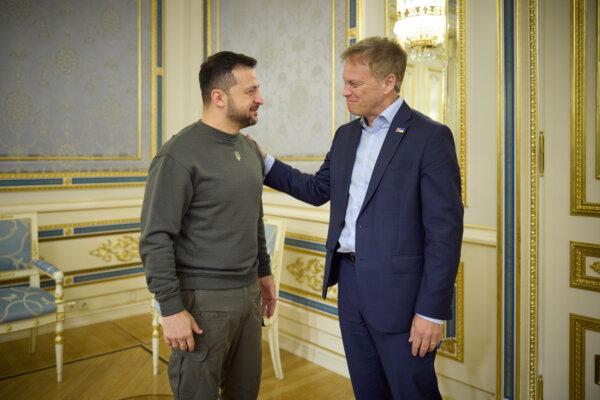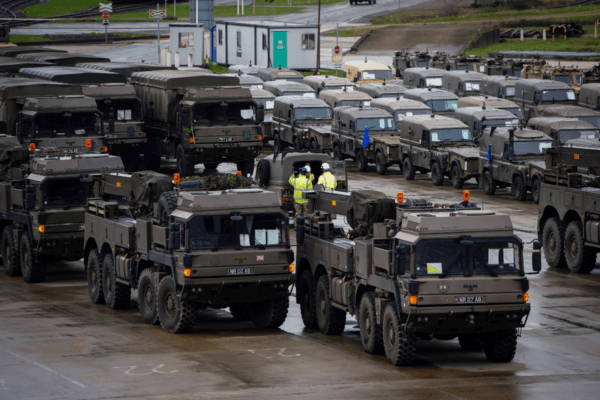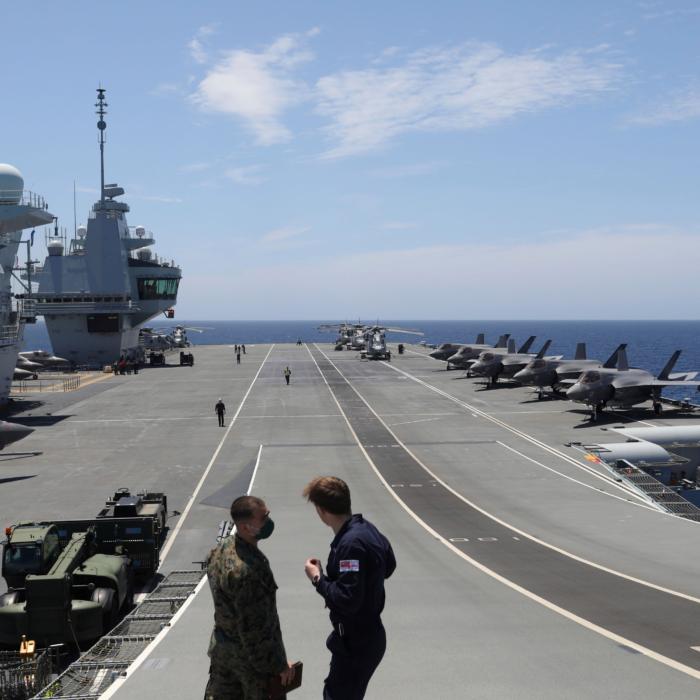NATO allies must accept we have moved from a post-war world to a pre-war world and increase defence spending, the defence secretary has said.
Mr. Shapps also called on partners to increase efforts to support Ukraine in its war with Russia and to reinforce the Euro-Atlantic defence sector.
Bad Actors on the Global Stage Are Aligning
“We have moved from a post-war to a pre-war world,” Mr. Shapps wrote, urging NATO allies that while we mark the anniversary of the alliance, members must consider its future as we face the prospect of hostile actors on the global stage presenting new threats to the West.“Russia is menacing our neighbours. China is increasingly belligerent. Iran is using its proxies to cause regional havoc from the Middle East to the straits of Yemen. And North Korea is perpetually rattling its nuclear sabre,” the defence minister wrote.
“Increasingly, these malign powers are aligning and our democracy is in their crosshairs,” he added.
Defence Spending Obligations
Mr. Shapps had warned the West that it was moving to a “pre-war” state in January. However, on this occasion, he specifically called on NATO allies to meet their spending obligations.Alliance members should “do more to pay their way” to bolster security, he said, urging members to consider exceeding the 2 percent spending target that allies agreed on ten years ago.
According to Mr. Shapps, the UK’s defence spending exceeds the minimum, currently at 2.28 percent though he had committed to increase that to 2.5 percent.
Mr. Shapps said that “we must look beyond that target to shore up our defences. Yet some nations are still failing to meet even the 2 percent. That cannot continue. We can’t afford to play Russian roulette with our future.”
Support for Ukraine
Mr. Shapps also said that allies must “redouble our efforts to support Ukraine,” stating that with the “right support,” the Eastern European country was able to render the Russian navy “functionally inactive” in the Black Sea. He further claimed that Ukraine is “defending the frontiers of freedom for us all.”Since 2022, the UK has provided over £7 billion in military support to Ukraine and had trained more than 60,000 military personal since 2014.

In Brussels, Lord Cameron had said that Ukraine was “closer to NATO than ever,” saying that the alliance “must sustain the critical support Ukraine needs to win the war.”
The foreign secretary said instead that the UK would use the “architecture” of NATO to deliver support to the Eastern European country, but distinguished between a NATO mission “for Ukraine” as opposed to “in Ukraine.”
Stockpiling and Munitions
Mr. Shapps also called for allies to “bolster our Euro-Atlantic defence sector,” which means investing more in ammunition and stockpiles.The minister said he had signed several multilateral defence procurement initiatives, “helped boost” Ukraine’s reserves with a £245 million investment in ammunition, and announced a deal to make the UK the largest drone supplier to Ukraine.

The UK has the fourth-largest defence budget in the world at $70 billion, with the U.S. in the lead ($766.6 billion), followed by China ($242.4 billion) and Russia ($87.9 billion), according to the MoD.







